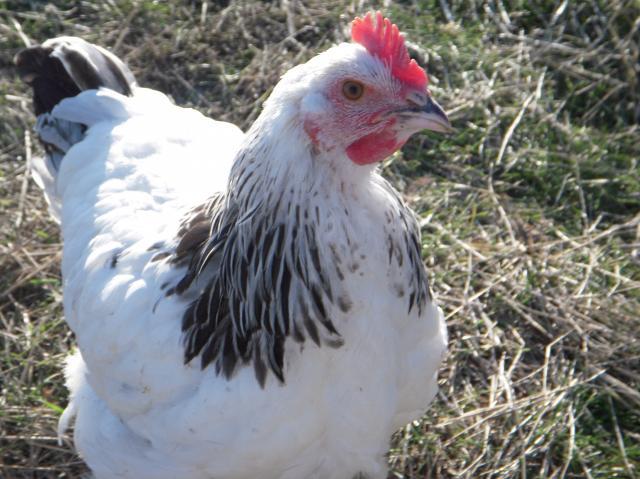I like the DC's a lot, but it's hard to find any really good quality ones. The ones I got from MHM were way undersized for the breed. A couple of other people who got them from MHM told me the same thing. From what people tell me, and what I've read here, the ones from Welp, and the ones from Ideal and Cackle are better than the ones from MHM. MHM's birds are very healthy, but tend to be off-type.
The best would be from a breeder, but good luck with that, depending on where you are. My luck with shipped eggs has been dismal, so I've been trying to find breeders within a half-day's drive, to get fertile eggs from.
Now, what I plan to do, and you may or may not want to try something similar, is use a good DC roo over various breeds of hens, and see which turn out the best. Cornish roo over What-ever hens, seems to be the best way, rather than the other way around. I've seen some Cornish/Delaware crosses that a guy not too far from me raised, they were huge. The ones I saw were over 6 months old, so I don't know how big they were and various younger stages. I raised some Brahma/Cornish, done backwards, Brahma roo and my undersized DC hens from MHM. They dressed out to over 6 lbs, and over 7 lbs, (2 each) at around 20-25 weeks. Too old for fryers, but extremely good slow cooked in the crock pot, very meaty, not scrawny or boney at all. Not a lot of fat, either.
I finally got a few Cornish roos, that while not the best quality, are at least better than the MHM birds, I'd love a couple of better quality DC hens, and I'll just try to breed to improve what I have. The results I got with not-the-best-breeders, done backwards, is encouraging. I feel like I may be on the right track, or at least somewhere near it.
I'd be happy with a decent sized bird (over 5 lbs.) by 16-18 weeks, if they're healthy, active birds that forage well.
The best would be from a breeder, but good luck with that, depending on where you are. My luck with shipped eggs has been dismal, so I've been trying to find breeders within a half-day's drive, to get fertile eggs from.
Now, what I plan to do, and you may or may not want to try something similar, is use a good DC roo over various breeds of hens, and see which turn out the best. Cornish roo over What-ever hens, seems to be the best way, rather than the other way around. I've seen some Cornish/Delaware crosses that a guy not too far from me raised, they were huge. The ones I saw were over 6 months old, so I don't know how big they were and various younger stages. I raised some Brahma/Cornish, done backwards, Brahma roo and my undersized DC hens from MHM. They dressed out to over 6 lbs, and over 7 lbs, (2 each) at around 20-25 weeks. Too old for fryers, but extremely good slow cooked in the crock pot, very meaty, not scrawny or boney at all. Not a lot of fat, either.
I finally got a few Cornish roos, that while not the best quality, are at least better than the MHM birds, I'd love a couple of better quality DC hens, and I'll just try to breed to improve what I have. The results I got with not-the-best-breeders, done backwards, is encouraging. I feel like I may be on the right track, or at least somewhere near it.
I'd be happy with a decent sized bird (over 5 lbs.) by 16-18 weeks, if they're healthy, active birds that forage well.








